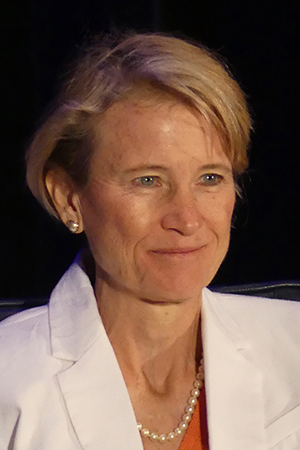Related Research Articles
Ethics is the philosophical study of moral phenomena. Also called moral philosophy, it investigates normative questions about what people ought to do or which behavior is morally right. Its main branches include normative ethics, applied ethics, and metaethics.
Value theory is the systematic study of values. Also called axiology, it examines the nature, sources, and types of values. As a branch of philosophy, it has interdisciplinary applications in fields such as economics, sociology, anthropology, and psychology.

Virtue ethics is a philosophical approach that treats virtue and character as the primary subjects of ethics, in contrast to other ethical systems that put consequences of voluntary acts, principles or rules of conduct, or obedience to divine authority in the primary role.

Rosalind Hursthouse is a British-born New Zealand moral philosopher noted for her work on virtue ethics. She is one of the leading exponents of contemporary virtue ethics, though she has also written extensively on philosophy of action, history of philosophy, moral psychology, and biomedical ethics. Hursthouse is Professor Emerita of Philosophy at the University of Auckland and Fellow of the Royal Society of New Zealand.

"Famine, Affluence, and Morality" is an essay written by Peter Singer in 1971 and published in Philosophy & Public Affairs in 1972. It argues that affluent persons are morally obligated to donate far more resources to humanitarian causes than is considered normal in Western cultures. The essay was inspired by the starvation of Bangladesh Liberation War refugees, and uses their situation as an example, although Singer's argument is general in scope and not limited to the example of Bangladesh. The essay is anthologized widely as an example of Western ethical thinking.

The Non-Aggression Principle (NAP), also called the Non-Aggression Axiom, the non-coercion principle, the non-initiation of force and the zero aggression principle, is a concept in which "aggression" – defined as initiating or threatening any forceful interference with either an individual or their property, or agreements (contracts) – is illegitimate and should be prohibited. Interpretations of the NAP vary, particularly concerning issues like intellectual property, force, and abortion.
David Schmidtz is a Canadian-American philosopher. He is Presidential Chair of Moral Science at West Virginia University's Chambers College of Business and Economics. He is also editor-in-chief of the journal Social Philosophy & Policy. Previously, he was Kendrick Professor of Philosophy and Eller Chair of Service-Dominant Logic at the University of Arizona. While at Arizona, he founded and served as inaugural head of the Department of Political Economy and Moral Science.

The Lockean proviso is a feature of John Locke's labor theory of property which states that whilst individuals have a right to homestead private property from nature by working on it, they can do so only if "there was still enough, and as good left; and more than the yet unprovided could use".

Propertarianism, or proprietarianism, is a political philosophy that reduces all questions of law to the right to own property. On property rights, it advocates private property based on Lockean sticky property norms, where an owner keeps their property more or less until they consent to gift or sell it, rejecting the Lockean proviso. Propertarianism is often described by its advocates as either synonymous with capitalism or its logical conclusion.

Tara A. Smith is an American philosopher. She is a professor of philosophy, the BB&T Chair for the Study of Objectivism, and the Anthem Foundation Fellow for the Study of Objectivism at the University of Texas at Austin.
The following outline is provided as an overview of and topical guide to the human self:
Achourya or Asteya is the Sanskrit term for "non-stealing". It is a virtue in Jainism. The practice of asteya demands that one must not steal, nor have the intent to steal, another's property through action, speech, and thoughts.

Animal rights is the philosophy according to which many or all sentient animals have moral worth independent of their utility to humans, and that their most basic interests—such as avoiding suffering—should be afforded the same consideration as similar interests of human beings. Broadly speaking, and particularly in popular discourse, the term "animal rights" is often used synonymously with "animal protection" or "animal liberation". More narrowly, "animal rights" refers to the idea that many animals have fundamental rights to be treated with respect as individuals—rights to life, liberty, and freedom from torture that may not be overridden by considerations of aggregate welfare.
Islamic ethics is the "philosophical reflection upon moral conduct" with a view to defining "good character" and attaining the "pleasure of God". It is distinguished from "Islamic morality", which pertains to "specific norms or codes of behavior".

Stoicism is a school of Hellenistic philosophy that flourished in Ancient Greece and Ancient Rome. The Stoics believed that the practice of virtue is enough to achieve eudaimonia: a well-lived life. The Stoics identified the path to achieving it with a life spent practicing the four cardinal virtues in everyday life — prudence, fortitude, temperance, and justice — as well as living in accordance with nature. It was founded in the ancient Agora of Athens by Zeno of Citium around 300 BCE.
John Hadley is an Australian philosopher whose research concerns moral and political philosophy, including animal ethics, environmental ethics, and metaethics. He is currently a senior lecturer in philosophy in the School of Humanities and Communication Arts at Western Sydney University. He has previously taught at Charles Sturt University and the University of Sydney, where he studied as an undergraduate and doctoral candidate. In addition to a variety of articles in peer-reviewed journals and edited collections, he is the author of the 2015 monograph Animal Property Rights and the 2019 monograph Animal Neopragmatism. He is also the co-editor, with Elisa Aaltola, of the 2015 collection Animal Ethics and Philosophy.

Political Animals and Animal Politics is a 2014 edited collection published by Palgrave Macmillan and edited by the green political theorists Marcel Wissenburg and David Schlosberg. The work addresses the emergence of academic animal ethics informed by political philosophy as opposed to moral philosophy. It was the first edited collection to be published on the topic, and the first book-length attempt to explore the breadth and boundaries of the literature. As well as a substantial introduction by the editors, it features ten sole-authored chapters split over three parts, respectively concerning institutional change for animals, the relationship between animal ethics and ecologism, and real-world laws made for the benefit of animals. The book's contributors were Wissenburg, Schlosberg, Manuel Arias-Maldonado, Chad Flanders, Christie Smith, Clemens Driessen, Simon Otjes, Kurtis Boyer, Per-Anders Svärd, and Mihnea Tanasescu. The focus of their individual chapters varies, but recurring features include discussions of human exceptionalism, exploration of ways that animal issues are or could be present in political discourse, and reflections on the relationship between theory and practice in politics.

Alan John Simmons is an American political philosopher.

Helga Varden is a Norwegian-American philosopher and Professor of Philosophy and Gender and Women Studies at the University of Illinois at Urbana-Champaign. She was Brady Distinguished Visiting Professor in Ethics and Civic Life at Northwestern University between 2014-2015. She is known for her works on Kantian philosophy.

Adam Daniel Moore is a philosopher and Professor at the University of Washington Information School. He conducts research and teaches in the areas of information ethics, social and political philosophy, philosophy of law, and normative ethical theory.
References
- ↑ Christman, John (1 April 1997). "The Limits of Lockean Rights in Property. Gopal Sreenivasan" . Ethics. 107 (3): 520–522. doi:10.1086/233752. ISSN 0014-1704.
- ↑ "Gopal Sreenivasan". scholars.duke.edu.
- ↑ Barney, Rachel (April 2024). "Gopal Sreenivasan, Emotion and Virtue: Five Questions About Courage". Criminal Law and Philosophy. 18 (1): 253–263. doi:10.1007/s11572-023-09672-w.